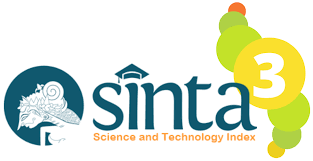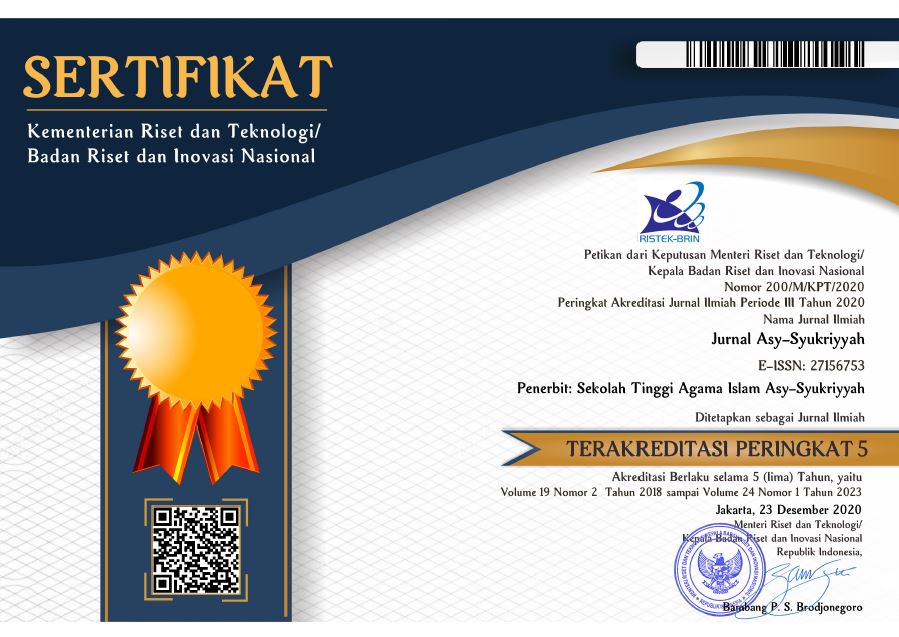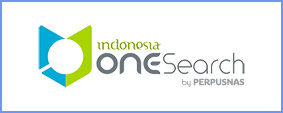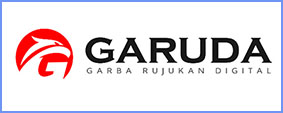THE DEVELOPMENT OF ISLAMIC RELIGIOUS EDUCATION CURRICULUM IN PESANTREN, MADRASAH, AND SCHOOLS IN THE MILLENNIAL ERA
DOI:
https://doi.org/10.36769/asy.v25i2.467Kata Kunci:
Curriculum Development, Pesantren, Madrasah, SchoolsAbstrak
The purpose of this study is to determine how the PAI curriculum is developed in pesantren, madrasah, and schools in the millennial era. This study uses a qualitative approach with a library research approach. The research results show that the curriculum is an essential component of the education program because it functions as a system and as a tool to achieve educational goals. In curriculum development, it must be adjusted to the conditions of students, schools, and the surrounding socio-cultural community, other parties related to the school. That is relevant to the needs and characteristics of the millennial generation will help them become individuals who are faithful, pious, and have noble character, which can be developed through intracurricular and extracurricular activities. Madrasah and pesantren prioritize in-depth Islamic education, while schools focus on general education in their curriculum development.
Referensi
Akrim, A. “Transformation of Islamic Education Curriculum Development Policy in the National Education System.” Cypriot Journal of Educational Sciences 17, no. 7 (2022): 2538–52. https://doi.org/10.18844/cjes.v17i7.7685.
Alabdulhadi, M. “Religious Tolerance in Secondary Islamic Education Textbooks in Kuwait.” British Journal of Religious Education 41, no. 4 (2019): 422–34. https://doi.org/10.1080/01416200.2019.1585329.
Asfiati. “Implementation of Policies, Strategies, Islamic Religious Education Learning Programs with Curriculum Integration During the Covid 19 Pandemic Period at State Madrasah Aliyah (MAN) Indonesian Scholar.” AIP Conference Proceedings, 2023. https://doi.org/10.1063/5.0166441.
Assyakurrohim, Dimas, Dewa Ikhram, Rusdy A Sirodj, and Muhammad Win Afgani. “Metode Studi Kasus Dalam Penelitian Kualitatif.” Jurnal Pendidikan Sains Dan Komputer. Information Technology and Science (ITScience), 2022. https://doi.org/10.47709/jpsk.v3i01.1951.
Hasan, Sya’roni. “Marliana, ‘ Anatomi Kurikulum Pendidikan Agama Islam Di Sekolah .’” Jurnal Al-Ibrah 2, no. 1 (2013): 60–87.
Kistoro, H C A. “Dynamics of the Implementation of Experience-Based Religious Learning in Indonesian and Malaysian Senior High Schools.” Jurnal Pendidikan Agama Islam 19, no. 2 (2022): 283–96. https://doi.org/10.14421/jpai.2022.192-08.
Lafrarchi, N. “Assessing Islamic Religious Education Curriculum in Flemish Public Secondary Schools.” Religions 11, no. 3 (2020). https://doi.org/10.3390/rel11030110.
Mahanani, P. “Educational Analysis to Develop Character in Malaysia and Indonesia.” International Journal of Instruction 15, no. 3 (2022): 377–92. https://doi.org/10.29333/iji.2022.15321a.
Marzuki, I. “How to Develop Blended Learning Educational Evaluation Courses Islamic Religious Education Study Program.” Universal Journal of Educational Research 8, no. 3 (2020): 24–34. https://doi.org/10.13189/ujer.2020.081404.
Memon, N A. Curriculum Renewal for Islamic Education: Critical Perspectives on Teaching Islam in Primary and Secondary Schools. Curriculum Renewal for Islamic Education: Critical Perspectives on Teaching Islam in Primary and Secondary Schools, 2021. https://doi.org/10.4324/9780429276811.
Mukhibat, M. “Development and Evaluation of Religious Moderation Education Curriculum at Higher Education in Indonesia.” Cogent Education 11, no. 1 (2024). https://doi.org/10.1080/2331186X.2024.2302308.
Mukhyidin, I. “Analysis of The Concept of Religious Humanism Islamic Education According to Abdurrahman.” Millah: Journal of Religious Studies 20, no. 1 (2020): 33–62. https://doi.org/10.20885/millah.vol20.iss1.art2.
Nasir, M. “Keeping the Middle Path: Mainstreaming Religious Moderation through Islamic Higher Education Institutions in Indonesia.” Indonesian Journal of Islam and Muslim Societies 11, no. 2 (2021): 213–41. https://doi.org/10.18326/ijims.v11i2.213-241.
Putkonen, N. “Balancing Differences through Highlighting the Common: Religious Education Teachers’ Perceptions of the Diversity of Islam in Islamic Religious Education in Finnish State Schools.” Religions 14, no. 8 (2023). https://doi.org/10.3390/rel14081069.
Raihani, R. “Education for Multicultural Citizens in Indonesia: Policies and Practices.” Compare 48, no. 6 (2018): 992–1009. https://doi.org/10.1080/03057925.2017.1399250.
Razali, R. “Curriculum Development in Higher Education in Light of Culture and Religiosity: A Case Study in Aceh of Indonesia.” International Journal of Society, Culture and Language 12, no. 1 (2024): 39–55. https://doi.org/10.22034/ijscl.2023.2010108.3144.
Santoso, M Abdul Fattah. “Integration of Education: The Case Study of Islamic Elementary Schools in Surakarta, Indonesia.” Humanities and Social Sciences Reviews 7, no. 4 (2019): 1046–52. https://doi.org/10.18510/hssr.2019.74143.
Shaikh, A L. “Exploring Marketing Orientation in Integrated Islamic Schools.” Journal of Islamic Marketing 13, no. 8 (2022): 1609–38. https://doi.org/10.1108/JIMA-11-2019-0241.
Suhayib. “Design of Islamic Religious Education: Purposes, Alignment of Curriculum Components and Contexts.” British Journal of Religious Education 45, no. 4 (2023): 382–93. https://doi.org/10.1080/01416200.2023.2220940.
Sukirman. “Examining ELT-Knowledge-Based Learning Outcomes Within the National Curriculum Guidelines of Indonesian Islamic Higher Education.” Studies in English Language and Education 11, no. 1 (2024): 228–46. https://doi.org/10.24815/siele.v11i1.30555.
Syahrizal, Hasan, and M Syahran Jailani. “Jenis-Jenis Penelitian Dalam Penelitian Kuantitatif Dan Kualitatif.” Jurnal QOSIM : Jurnal Pendidikan, Sosial & Humaniora. Yayasan Pendidikan Dzurriyatul Quran, 2023. https://doi.org/10.61104/jq.v1i1.49.
Ucan, A D. Improving the Pedagogy of Islamic Religious Education in Secondary Schools: The Role of Critical Religious Education and Variation Theory. Improving the Pedagogy of Islamic Religious Education in Secondary Schools: The Role of Critical Religious Education and Variation Theory, 2019. https://doi.org/10.4324/9780429055706.
Wakhidah, N. “Examining Environmental Education Content on Indonesian Islamic Religious Curriculum and Its Implementation in Life.” Cogent Education 9, no. 1 (2022). https://doi.org/10.1080/2331186X.2022.2034244.
Wijaya, C. “Management of Islamic Education Based on Interreligious Dialogue in The Learning Process in Schools as An Effort to Moderate Religion in Indonesia.” Review of International Geographical Education Online 11, no. 5 (2021): 4306–14. https://doi.org/10.48047/rigeo.11.05.310.
Winoto, S. “Improving Curriculum and Lecturers: Challenges to Quality Based-Technology.” Journal of Social Studies Education Research 13, no. 2 (2022): 221–42.
Yahya, M.H.M.W.B. “Building Moderate Islamic Thoughts in Indonesian Students through Dialogue-Argumentative Methods.” Academic Journal of Interdisciplinary Studies 10, no. 3 (2021): 288–300. https://doi.org/10.36941/AJIS-2021-0084.
Yazit, R.N.S.R. Mohd. “Illuminance Level Measurement at Lower Working Plane Height in Islamic Religious School.” Asian Journal of University Education 16, no. 3 (2020): 125–37. https://doi.org/10.24191/ajue.v16i3.11076.
##submission.downloads##
Diterbitkan
Cara Mengutip
Terbitan
Bagian
Lisensi
Hak Cipta (c) 2024 Dwi Wahyuni, Mustolikh Khabibul Umam , Daluti Delimanugari, Nisa Munadatus Solicah, Serli Ardhelia

Artikel ini berlisensi Creative Commons Attribution 4.0 International License.














